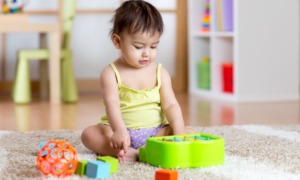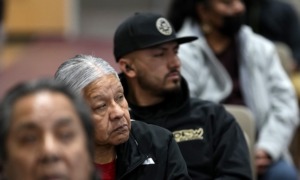LA Youth, Los Angeles
I was in seventh grade when people started to get curious about what I was.
Most kids assumed I was white. When I told them I was part black, they didn’t believe me. They’d say, “Seriously?” or “No, you’re not really black.” I’d answer with, “Why would I lie about that?”
That year, I made friends with a diverse group in my gym class. There was a Hispanic girl, an Armenian, another girl who was half black and half white, and two black girls. The two black girls were what everyone considered “typically black”: They listened to rap and dressed “ghetto” in baggy pants and tight tops.
At least once a week, my two black friends were upset about their parents. One of them hated her dad and the other didn’t like her mom’s strict rules. If I tried to help, they’d say, “You wouldn’t get it. You’re so lucky, you get everything you want.” I didn’t understand why they said those things. I wasn’t rich and I didn’t get everything I wanted.
They would talk about artists like 50 Cent and Eminem, but left me out of the conversation. They said, “You’re such a nice little white girl,” because I didn’t cuss and I followed the class rules. I never understood why being nice made me “white,” but after a few months it seemed as though anything I did was automatically “not the black way.”
I was being judged by people who knew very little about the real me – but this time because I wasn’t “black enough.” When I was younger, I was considered “too black.”
In the beginning of eighth grade, I changed a lot. I stopped wearing basketball clothes and started listening to rock. I had listened to rap music, but they were singing about partying, drinking and women. Everything was so pointless. My friend introduced me to new bands, like Green Day and The Killers. I couldn’t believe the difference. They sang about love, loss, and finding themselves.
I was still the same person, but some people assumed I didn’t want to be black. Kids began to call me “whitewashed” and “Oreo.” I didn’t know what those meant, so I didn’t care. But when I’d hear those words almost every day, it started to bother me. “Whitewashed” suggested I was ashamed of my black heritage. By the end of eighth grade, I couldn’t take it anymore.
One day my Asian friend, who is really into rap, once again brought up race.
“Melanie, why do you act so white?” she asked. “Are you ashamed of being black or something?”
“No. I don’t act white or black,” I said. “Just because I don’t act ‘ghetto’ doesn’t mean I’m not as black as someone who does.”
“OK, but most black people act that way.”
“How do you know? And even if that is true, it doesn’t mean that because a majority of black people act that way, that I have to. There’s no ‘acting white’ or ‘acting black.’ ”
“Whatever, you know you’re whitewashed.”
“How can I be whitewashed if I’m half black?”
She shook her head and walked away.
I felt proud that I stood up to my friend. She stopped calling me whitewashed for a while and opted for Oreo instead. Then she ran out of names.
I like who I am. I’m Melanie. I play basketball. My friends and family are important to me. Music is important to me. If you just see me as “half black and half white,” you’re missing everything else that makes up me.
©L.A. Youth, http://www.layouth.com.































